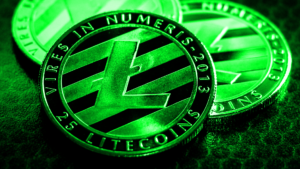Partner and venture capitalist at Andreessen Horowitz, Katie Haun said that the US should look at China for how to approach and regulate the bitcoin and cryptocurrency industry, noting that a ‘one-size-fits-all’ approach would not work in a rapidly evolving space.
In Brief
- Venture capitalist Katie Haun said that the US should see China as a cautionary tale when it comes to regulating crypto.
- “This is an opportunity for the United States, because we should be doing the exact opposite in my mind in this realm of what China is doing,” said Haun, a partner at Andreessen Horowitz.
- The timing of the Chinese crypto crack down comes just as the e-yuan is on the verge of being rolled out.
Cryptocurrencies aren’t going away. Buy Bitcoin here.
“This is an opportunity for the United States, because we should be doing the exact opposite in my mind in this realm of what China is doing,” Haun, an ex-federeal prosecutor who manages Andreessen Horowitz’s crypto investments, said on Wednesday at CNBC’s Delivering Alpha conference.
This year, China created its own digital currency, the digital Yuan, which is fully controlled by the regime’s People’s Bank of China. The country aims to replace cash with digital money, having rung trials in several cities including Schenzhen, Chendgdu and Suzhou.
Central bank digital currencies are being developed by numerous central bankers, and represent an opportunity for legacy organisations like the PBOC and the Bank of International Settlements to further centralise monetary power over people’s spending habits. The Digital Yuan is one such tool, which is ominously programmable and can be used to sanction individual citizens for any arbitrary reason the regime sees fit.
In the Conference, Haun predicted that China will “tie trade, tie loans, tie other assistance to the use of essentially their stablecoin,” a one-to-one representation of fiat money like dollars. China’s recent efforts to crack down on bitcoin and crypto come just before the Digital Yuan roll-out.
Haun said that so far, the US has taken the right approach on central bank digital currencies, or CBDCs.
“I’m glad we’re studying as a country CBDCs, but we’ve publicly said as a country that we’re going to keep studying it for a couple of years,” she said. “I think it’s really important that policymakers and private industry in the U.S. work together.”
Haun also waded into the regulatory debate in the U.S. and said it’s a “myth” that crypto industry players are opposed to all regulation.
“It’s not that the industry does not want regulation,” Haun said. “It wants clarity, but it also does not want to be treated as a monolith.”
As an example, Haun described non-fungible tokens, or NFTs, which are digital collectibles.
“Why should that be regulated as a financial product and service? We don’t think it should be,” said Haun, who as a prosecutor was asked to investigate bitcoin. “Regulation cannot be one size fits all.”
Haun said she was disappointed that the SEC, in her view, is penalizing crypto companies like Coinbase that are trying to be compliant. Coinbase, which counts Haun as a board member, recently halted its plan to introduce a lending product after CEO Brian Armstrong revealed that the company had received a Wells notice from the SEC, which threatened to sue if Coinbase followed through with the offering.
Haun said that some in the industry are getting punished despite “good faith efforts” while others, who are skirting regulations and laws, “are really getting a free pass.”
In the same week, Fed Chairman Jerome Powell seemingly confirmed Haun’s expectations when asked about it, stating that the US has no intention to ban stablecoins or cryptocurrencies and that stablecoin issuers would eventually need to be brought into the US’ regulatory regime.
Typically, when China bans innovation, said technology thrives over the following years.
With the US and China heading in opposite directions, it appears that history will in fact repeat itself once again with Bitcoin.
Subscribe to the semi-weekly newsletter for regular insight into bitcoin and crypto. Go on. It’s free.
Join the telegram channel for updates, charts, ideas and deals.
Did you like the article? Share it!


